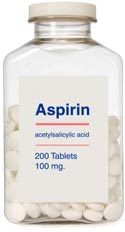Most health authorities define constipation as having fewer than three bowel movements in a week. In my experience as a health care professional, I believe this to be a gross underestimate and a telling indication of just how unhealthy the average American diet has become. You should have a minimum of two bowel movements every day. A healthy bowel movement should be soft, smooth, and easy to pass. If you have fewer than two per day, or if you find yourself straining, then you are likely constipated. (more…)







